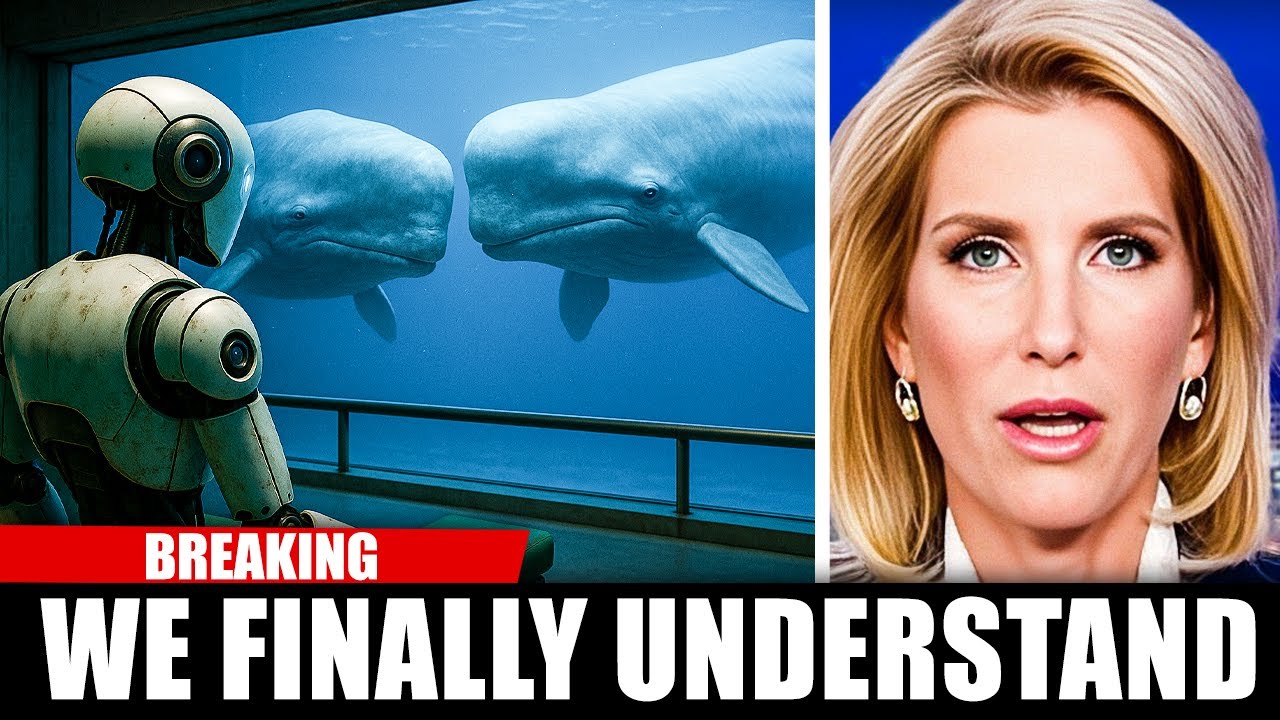🦈 AI just unlocked the WHALE’S SECRET CODE… but it’s a chilling wake-up call for humanity! 🐋
Deep in the ocean’s abyss, these giants whisper strategies that could expose our deadliest flaws—ancient dialogues of survival we never saw coming. 😲 Echoes from the deep that demand we listen… before it’s too late. Plunge into the hidden world shaking science: 👉

In the shadowy depths off the Caribbean island of Dominica, where sunlight barely pierces the midnight zone, sperm whales have long conversed in a cryptic symphony of clicks that echo like Morse code from another world. For decades, marine biologists puzzled over these rhythmic bursts, known as codas, wondering if they held the key to one of the ocean’s greatest enigmas: Do whales possess a true language? Now, a cutting-edge artificial intelligence initiative has cracked open this vault, revealing a “phonetic alphabet” in sperm whale communication that rivals the complexity of human speech. But the discovery isn’t just a triumph of tech—it’s igniting fierce debates over what these oceanic giants might be saying about us, and whether humanity is ready to hear it.
Project CETI (Cetacean Translation Initiative), a nonprofit powerhouse blending AI wizards, roboticists, linguists, and whale experts, dropped the bombshell in a May 2024 paper published in Nature Communications. Led by Pratyusha Sharma of MIT’s Computer Science and Artificial Intelligence Laboratory (CSAIL), the team pored over 8,719 codas from about 60 sperm whales, recorded between 2005 and 2018 by the Dominica Sperm Whale Project. Using machine learning algorithms fine-tuned for pattern recognition and classification—much like those powering your smartphone’s voice assistant—they uncovered not random noise, but a structured system. Codas, those short salvos of 3 to 40 clicks, vary wildly in rhythm, tempo, rubato (subtle speed shifts), and ornamentation (extra clicks tacked on like linguistic flair). These aren’t mere echoes; they’re building blocks akin to phonemes, the sound units humans mash into words.
“It’s like finding the vowels and consonants of whale-speak,” says David Gruber, Project CETI’s founder and a National Geographic Explorer. “We’re seeing combinatorial elements—simple clicks blending into complex messages—that mirror how humans layer sounds for meaning.” The study identified 156 distinct coda types, each tied to context: faster tempos for urgent hunts, drawn-out rubatos during social chit-chat among family pods. In one chilling sequence, whales layered ornamented codas during a deep-dive hunt, possibly coordinating attacks on giant squid—strategies honed over millennia that make human tactics look amateurish.
Sperm whales, the ocean’s heavyweight champs at up to 59 feet and 45 tons, aren’t solo artists. They form matrilineal clans—tight-knit families led by females, spanning thousands of members across oceans. Each clan boasts a dialect, a unique coda style passed down like heirloom recipes. Caribbean pods favor the “1+1+3” pattern (click-pause-click-pause-click-click-click), while Pacific groups riff on “5-regular” bursts. CETI’s AI sifted spectrograms—visual maps of sound waves—to spot these dialects, revealing how ornamentation adds nuance, much like emphasis in English (“hello” vs. “HELLO!”). “This isn’t pigeon coos,” notes Shane Gero, CETI’s biology lead and Dominica project founder. “It’s turn-taking dialogue, with overlaps and responses, in the pitch-black deep where sight fails.”
The tech behind this leap? A cocktail of unsupervised machine learning and natural language processing (NLP), borrowed from tools that translate Mandarin to Swahili on the fly. CETI’s algorithms don’t just catalog clicks; they hunt for “duality of patterning”—a hallmark of human language where meaningless sounds (phonemes) combine into meaningful units (words). Early tests show whale codas flex this duality, suggesting syntax: a 2025 update from the project hints at “sentences” formed by coda chains, varying by social scene. Playback experiments—beaming decoded codas back at whales via underwater speakers—elicit responses: pods circle boats, matching rhythms like eavesdroppers joining a gossip session. One 20-minute “chat” with a humpback named Twain off Alaska, detailed in a 2024 PeerJ paper, saw the whale mimic human-played calls, circling curiously as if pondering the intruder.
But here’s the rub: It’s not all harmonious hymns. The “not what you think” twist? Whales aren’t crooning love ballads or philosophical treatises—at least, not the fluffy ones we romanticize. Decoded snippets suggest pragmatic chatter: hunt coordinates, pod alerts, even warnings about threats like ships or seismic rumbles. A 2025 CETI analysis of Caribbean recordings caught codas spiking near seismic surveys—possibly distress signals over noise pollution that rivals a rock concert. “They’re complaining about us,” quips neuroecologist Yossi Yovel of Tel Aviv University, who studies bat chatter. “Our oceans are a cacophony now, drowning their dialects.” Sperm whales, once hunted to near-extinction for ambergris (perfume fixative) and oil, number about 1 million today, per the International Whaling Commission. Yet shipping noise, plastic chokeholds, and warming currents fragment clans, silencing dialects faster than AI can catalog them.
Launched in 2020 with TED Audacious funding, CETI’s $30 million war chest (from Dalio Philanthropies, OceanX, and others) deploys “gentle” tech: drone-launched tags that suction harmlessly for hours, capturing clicks with hydrophones; aerial drones sniffing VHF signals to predict surfacing spots; underwater mics in a vast array off Dominica. No spears or harpoons here—just algorithms crunching terabytes. “We’re building an interspecies Rosetta Stone,” says MIT’s Jacob Andreas, an NLP guru on the team. But skeptics abound. Some linguists argue codas lack true semantics—no evidence of abstract concepts like “tomorrow” or “justice.” “It’s sophisticated signaling, not Shakespeare,” counters Caroline Casey of UC Santa Cruz, who probes elephant seal grunts. Ethical landmines lurk too: Decoding could arm poachers with lure calls, or spark “whale tourism” hordes. CETI’s legal arm, partnering with NYU’s More-Than-Human Life project, pushes for “nonhuman rights”—treating clans as cultural entities under law.
The ripple effects? Monumental. Conservation could turbocharge: Imagine rerouting tankers via whale “traffic reports,” slashing fatal strikes (over 1,000 large whales annually, per NOAA). Climate insights too—whales track gyres, sensing shifts we miss. Broader AI animal-talk: CETI’s toolkit eyes elephants’ rumbles, bat squeaks, even prairie dog alerts. A 2024 MIT tale envisions “Bioglossia,” an AI decoding humpback dialects at 96% accuracy, birthing “whale lit” translations. But whispers of sci-fi dread: What if whales “discuss” us as pests? Or hold grudge-lore from whaling days? “They’re smarter than we feared,” warns Gruber. “This could humble us—or haunt us.”
In Dominica’s turquoise bays, where fishermen once harpooned these behemoths, locals now guide CETI boats—eco-tourism blooming from science. Gero’s team logs pods like census-takers: “Twitch,” the matriarch with a notched fin; “Rounder,” her calf-nursing kin. Tags reveal social webs: alliances forged in codas, feuds fizzled in rubato flourishes. Yet challenges persist. Whales dive 2 miles deep, surfacing 10 minutes hourly—chasing them demands predictive AI, like Harvard’s 2024 drone algorithms forecasting breaches via dive math.
Critics like Marc Bekoff, a Colorado ethologist, caution against anthropomorphism: “We’re projecting tea-party talk onto hunt calls.” Fair point—early decodes skew practical, not poetic. Still, a 2025 NPR segment aired tentative “translations”: a coda cluster amid squid frenzy? “Flank left—prey at 300 meters.” Near a drill ship? “Evade—vibrations rising.” If verified, it’s a mirror: Whales as strategists, adapting to our chaos like resilient neighbors.
Globally, the hunt expands. Google’s DolphinSETI trains models on cetacean chatter, eyeing ET signals—whale wits as cosmic litmus. In labs, unsupervised translation bridges “human-whale gaps,” per UChicago’s 2025 podcast. But Yovel warns: “We grasp their world only where it overlaps ours—food, kin, threats. The rest? Alien.” CETI’s Phase II ramps playback ethics: No tricks, just echoes to gauge intent.
As 2025 unfolds, with Dominica’s reefs bleaching and codas thinning, this decode feels urgent. Whales, Earth’s oldest minds (fossils to 50 million years), whisper survival scripts we wrecked. Decoding isn’t conquest—it’s eavesdropping on elders. Will we heed their alphabet, amending our noisy sins? Or let hubris mute the deep? Gruber muses: “They’re not begging; they’re briefing. Time we tuned in.”
In the end, CETI isn’t just tech triumph—it’s a reckoning. From phonetic clicks to policy planks, the whale word revolution brews, promising alliance or admonition. As one pod vanishes into the blue, their final coda fades: a rubato plea, or patterned pardon? Science listens; humanity decides.





